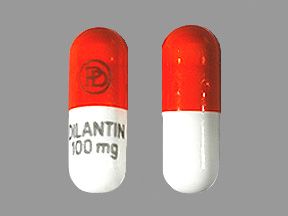Top Class Actions’s website and social media posts use affiliate links. If you make a purchase using such links, we may receive a commission, but it will not result in any additional charges to you. Please review our Affiliate Link Disclosure for more information.

As a result, over 100 Dilantin SJS lawsuits have been filed that have claimed that Pfizer was aware of Dilantin side effects but failed to warn users about SJS.
Dilantin was approved by the U.S. Food and Drug Administration (FDA) in 2001 as a seizure medication, but it has also been prescribed to treat bipolar disorder. Since its introduction to the market, many individuals have filed adverse event reports to the FDA and other health organizations stating that Dilantin caused them to develop SJS. It is also expected that most Dilantin SJS cases are unreported.
Dilantin side effects include other problematic conditions besides SJS including insomnia, muscle coordination problems, nausea, fatigue, frequent bone fractures, joint pain, unusual bleeding and several other side effects.
Dilantin SJS
Stevens Johnson Syndrome is a severe skin condition that causes the skin to literally burn off from the inside out. It begins with flu-like symptoms, which often leads to misdiagnosis.
However, SJS develops into a painful rash and blisters that typically cover 10 percent to 30 percent of the skin. SJS side effects may also affect the mucous membranes of the body such as the eyes, nose, and mouth.
SJS patients are often left with scars on the skin in addition to other long-term SJS side effects such as blindness and organ failure. Roughly every one in 20 SJS cases is fatal.
When the blisters cover more than 30 percent of the body, the diagnosis changes to Toxic Epidermal Necrolysis (TEN), a considerably dangerous and more severe version of SJS.
While SJS can lead to skin loss, TEN can cause up to 90 percent of the skin to be covered in blisters, swell, and shed in large sheets. This leaves the body vulnerable to secondary infections, sepsis, and death. Sepsis is the leading cause of TEN fatality.
TEN patients are often treated in burn wards due to the similarity in symptoms to fire burns. Recovery may take several months and about 30 percent to 40 percent of TEN cases are fatal.
SJS and TEN are both relatively rare conditions. However, as one study suggested, Dilantin SJS and TEN may make up for more than 20 percent of SJS and TEN cases. Nearly a one in four of these patients died from Dilantin side effects.
This Dilantin study examined 15 burn centers in the United States.
SJS Lawsuits
Many have chosen to file Dilantin SJS lawsuits against Pfizer for failing to warn against dangerous Dilantin side effects. However, thousands of SJS lawsuits have been filed against drug manufacturers across the country as more and more people report drug-caused SJS and TEN.
Patients who have developed Stevens Johnson Syndrome or Toxic Epidermal Necrolysis after taking Dilantin may be able to file a Dilantin SJS lawsuit against Pfizer. Millions have already been awarded in Dilantin lawsuit settlements.
Do YOU have a legal claim? Fill out the form on this page now for a free, immediate, and confidential case evaluation. The SJS attorneys who work with Top Class Actions will contact you if you qualify to let you know if an individual lawsuit or Dilantin class action lawsuit is best for you. [In general, Dilantin lawsuits are filed individually by each plaintiff and are not class actions.] Hurry — statutes of limitations may apply.
ATTORNEY ADVERTISING
Top Class Actions is a Proud Member of the American Bar Association
LEGAL INFORMATION IS NOT LEGAL ADVICE
Top Class Actions Legal Statement
©2008 – 2024 Top Class Actions® LLC
Various Trademarks held by their respective owners
This website is not intended for viewing or usage by European Union citizens.
Get Help – It’s Free
Help for Victims of Stevens Johnson Syndrome
If you or a loved one were diagnosed with Stevens Johnson Syndrome (SJS) or toxic epidermal necrolysis (TEN) after taking a prescribed or over-the-counter medication, you may be eligible to take legal action against the drug’s manufacturer. Filing an SJS lawsuit or class action lawsuit may help you obtain compensation for medical bills, pain and suffering, and other damages. Obtain a free and confidential review of your case by filling out the form below.
An attorney will contact you if you qualify to discuss the details of your potential case at no charge to you.
Oops! We could not locate your form.












